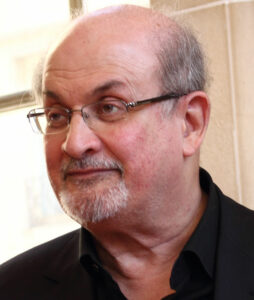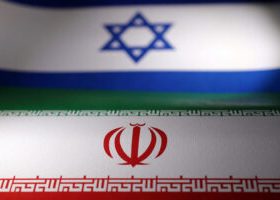EN.WIKIPEDIA.ORG
DUBAI — No one has the right to level accusations against Iran over Friday’s attack on Salman Rushdie, for which he and his supporters are solely to blame, the foreign ministry in Tehran said on Monday.
The novelist, who has lived under threat for decades since enraging clerical authorities in Iran through his writing, is recovering after being repeatedly stabbed at a public appearance in New York state.
In Iran’s first official reaction to Friday’s attack, ministry spokesperson Nasser Kanaani said freedom of speech did not justify Mr. Rushdie’s insults against religion. His 1988 novel The Satanic Verses is viewed by some Muslims as containing blasphemous passages.
“During the attack on Salman Rushdie, we do not consider anyone other than himself and his supporters worthy of reproach, reproach and condemnation,” Kanaani told a news briefing. “No one has the right to accuse Iran in this regard.”
Writers and politicians around the world have condemned the attack.
US Secretary of State Antony Blinken said on Sunday that Iranian state institutions had incited violence against Mr. Rushdie for generations, and state-affiliated media had gloated about the attempt on his life.
The Indian-born writer has lived with a bounty on his head since The Satanic Verses was published in 1988. The following year, Iran’s then Supreme Leader Ayatollah Ruhollah Khomeini issued a fatwa, or edict, calling on Muslims to kill the novelist and anyone involved in the book’s publication.
The Iranian government said in 1998 it would no longer back the fatwa.
But in 2019, Twitter suspended Iran’s Supreme Leader Ayatollah Ali Khamenei’s account over a tweet that said the fatwa against Mr. Rushdie was “solid and irrevocable”.
HARDLINE REACTIONS
Mr. Rushdie, 75, has lived relatively openly in recent years.
He was about to deliver a lecture at the Chautauqua Institution in western New York on the importance of the United States as a haven for targeted artists when police say a 24-year-old man rushed the stage and stabbed him.
The suspect in the stabbing, Hadi Matar of Fairview, New Jersey, pleaded not guilty to charges of attempted murder and assault at a court appearance on Saturday, his court-appointed lawyer, Nathaniel Barone, told Reuters.
An initial law enforcement review of Mr. Matar’s social media accounts showed he was sympathetic to Shi’ite extremism and Iran’s Islamic Revolutionary Guard Corps (IRGC), according to NBC New York. The IRGC is a powerful faction that Washington accuses of carrying out a global extremist campaign.
Ministry spokesperson Kanaani said Mr. Rushdie had “exposed himself to popular outrage by insulting Islamic sanctities and crossing the red lines of 1.5 billion Muslims.”
He said Iran had no other information about the novelist’s suspected assailant except what had appeared in media.
Hardline Iranian state media outlets celebrated the attack with headlines including “Satan has been blinded” and some Iranians voiced support online for the stabbing.
Matar was the son of a man from Yaroun in southern Lebanon, according to Ali Tehfe, the town’s mayor. Mr. Matar’s parents emigrated to the United States, where he was born and raised, the mayor said, adding he had no information on their political views.
The Iran-backed armed group Hezbollah holds significant sway in Yaroun, where posters of Khomeini and slain IRGC commander Qassem Soleimani, who was killed by a US drone strike in 2020, adorned walls at the weekend.
A Hezbollah official told Reuters on Saturday that the group had no additional information on the attack on Mr. Rushdie. — Reuters








